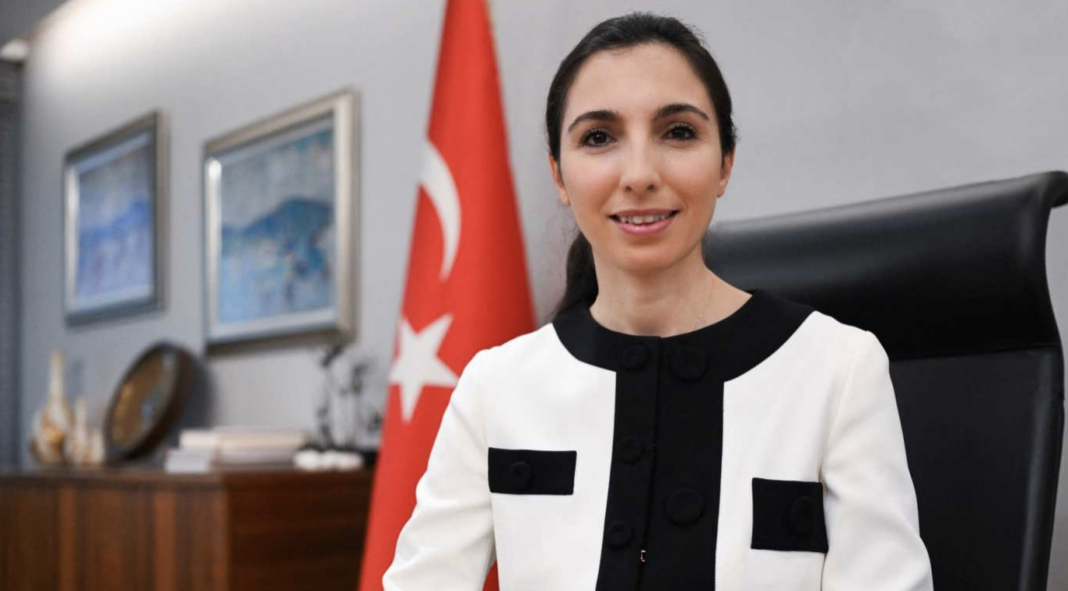Issuance comes days after departure of central bank chief who had taken hawkish approach to high inflation
February 7, 2024, Adam Samson, Financial Times
Turkey’s sovereign wealth fund attracted strong demand for its debut international bond deal, in the clearest sign yet that investors have shrugged off last week’s shake-up at the country’s central bank.
The Turkey Wealth Fund notched up $7bn in orders for its $500mn US dollar-denominated bond deal on Wednesday, according to a term sheet seen by the Financial Times.
The TWF’s successful fundraising underscores how investors have embraced new central bank governor Fatih Karahan, who was appointed on Friday in the latest upheaval for the institution. His predecessor, Hafize Gaye Erkan, stepped down about eight months into her tenure, during which she increased interest rates from 8.5 per cent to 45 per cent.
Local and foreign analysts are betting that Karahan, previously the bank’s deputy governor, will stick with Erkan’s policy of using high borrowing costs as the main tool to cool an inflation rate of nearly 65 per cent.
The deal was a sign that Karahan had been “endorsed by the market”, said Stefan Weiler, head of debt capital markets for Central and eastern Europe, the Middle East and Africa at JPMorgan, who worked on the deal.
He said investors had been “reassured” by signs of continuity at the central bank. Allegations had swirled in local media for weeks that Erkan had given her father an unofficial role at the bank and that he had sacked an employee, claims she denies.
The robust demand on the TWF deal helped bankers reduce the yield on the five-year bond from an initial target on Wednesday morning above 9 per cent down to 8.375 per cent by the afternoon.
Turkish sovereign dollar bonds maturing in March 2029 are at present trading with a yield of about 7.6 per cent.
TWF, which was set up in 2016, holds stakes in a broad array of Turkish companies and infrastructure and real estate assets, including flag carrier Turkish Airlines, several big lenders and the country’s stock exchange, Borsa Istanbul. The fund also retains full ownership of energy group Botaş, widely seen as one of Turkey’s crown jewel assets, national postal company PTT and a large port near the western city of Izmir.
TWF declined to comment on its fundraising.
The TWF deal comes as foreign investors, who had largely abandoned Turkey’s local and international assets over the past decade, start to return, encouraged by a broad economic overhaul following President Recep Tayyip Erdoğan’s re-election in May. The central bank’s rate rises, which reversed Erdoğan’s long-held insistence on keeping borrowing costs low at all costs, have been a main pillar of the programme.
Analysts say they broadly expect Karahan will continue with the tighter monetary policy.
The smooth transition at the central bank was “a test passed by Erdoğan . . . because there was a change in governor, but it didn’t mean the policy changed”, Weiler said.
“Unlike previous leadership changes . . . [Erkan’s] resignation appears not to have been triggered by any disagreement between the political leadership of the country and the central bank,” added Clemens Grafe, economist at Goldman Sachs. That was a reference to previous incidents in which Erdoğan, who previously called high rates the “mother and father of all evil”, sacked governors for raising rates.
Turkish asset prices have broadly reflected economists’ calm reaction to Karahan’s appointment.
Turkey’s lira has fallen slightly against the dollar since Erkan’s resignation, while the benchmark Bist 100 stock index has advanced 2 per cent. The cost of protecting against a Turkish debt default using five-year credit default swaps, an important measure of the perceived risk in holding Turkish assets, has slipped about 10 basis points since last Thursday to 330bp, according to FactSet data.
BBVA, JPMorgan and Standard Chartered were joint global co-ordinators and bookrunners on the TWF deal, while Bank of America, Emirates NBD Capital, ICBC, ING, QNB Capital and Société Générale are bookrunners.

